- Overview
- Symptoms
- Causes & Risks
- Diagnosis
- Types
- Major Depressive Disorder
- Treatment
- Antidepressants
- Treatment-Resistant Depression (TRD)
- Living With
- Recovery & Relapse
- Complications
- Caregiving & Support
- Appointment Prep
- View Full Guide
Lifestyle Changes to Ease Depression

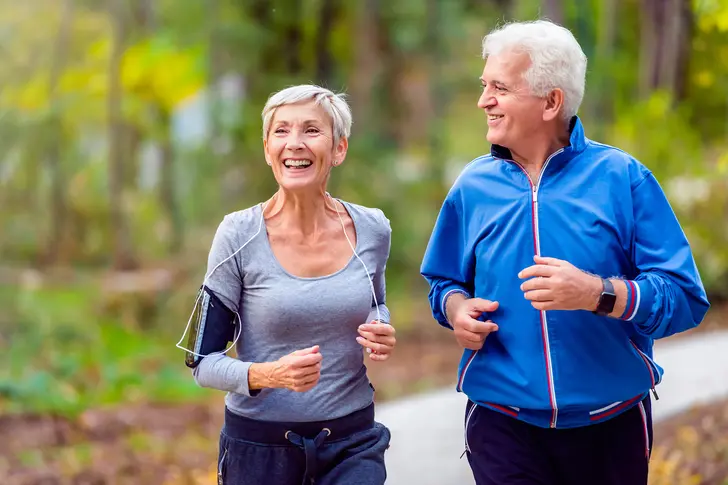
Get Moving to Lift Your Mood
Exercise stands out as one of the most effective natural antidepressants available, with studies showing it can be as effective as medication or therapy for mild to moderate depression. Physical activity works on multiple levels to combat depression—it releases endorphins (natural mood elevators), increases body temperature (which has calming effects), reduces inflammation, and stimulates neural growth. You don't need to become a marathon runner to benefit; even modest amounts of activity can make a significant difference. Aim for 30 minutes of moderate exercise most days, but even 10-minute bursts have benefits. Walking, swimming, gardening, dancing, or any activity that gets you moving counts. The key is finding something enjoyable enough that you'll stick with it. If motivation is lacking (common with depression), start with just five minutes daily and gradually increase, or try exercising with a friend who can help you stay accountable.
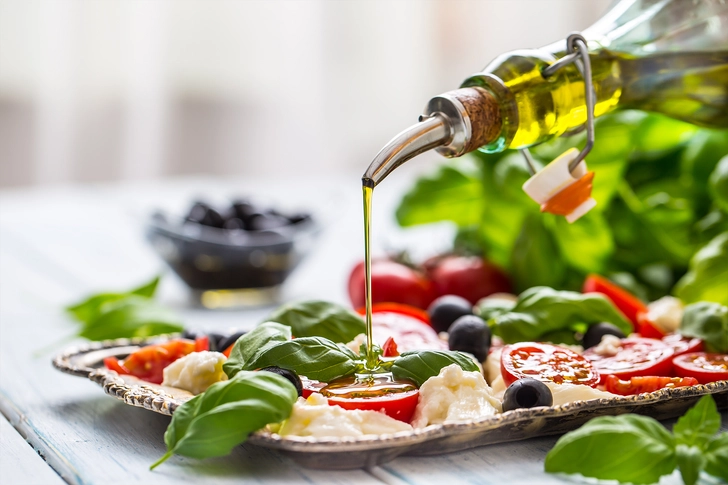
Feed Your Mind with Good Food
What you eat directly impacts your brain chemistry and mood. Research increasingly supports the gut-brain connection, showing that what you eat can have a significant impact on your mood. A Mediterranean-style diet rich in fruits, vegetables, whole grains, fish, olive oil, and nuts is associated with a significantly lower risk of depression. Specific nutrients support brain health: omega-3 fatty acids (found in fatty fish, walnuts, and flaxseeds) reduce inflammation; folate (in leafy greens, legumes) helps produce mood-regulating neurotransmitters; antioxidants combat oxidative stress linked to depression; and probiotics support gut bacteria that influence mood. Avoid processed foods, refined sugars, and trans fats, which all promote inflammation and can worsen symptoms. Small, sustainable changes work better completely overhauling your diet. Try adding one extra serving of vegetables daily, swapping refined grains for whole ones, or including fatty fish twice weekly.

Get Some Sunshine
Natural light exposure is a powerful but often overlooked tool for managing depression. Sunlight triggers the brain's production of serotonin, a neurotransmitter that boosts mood and helps you feel calm and focused. Light also regulates your circadian rhythm, which controls sleep-wake cycles often disrupted in depression. Morning sunlight is particularly effective—try to get 15-30 minutes within the first hour of waking when possible. Even on cloudy days, outdoor light is much brighter than indoor lighting. During darker winter months, when seasonal affective disorder (SAD) is common, light therapy using a special 10,000-lux light box can effectively supplement natural light. Spending time outdoors also gets you moving and connecting with nature, which also can improve your mood. If getting outside is difficult due to weather or mobility issues, simply sitting near a bright window can help, though being outdoors works best.
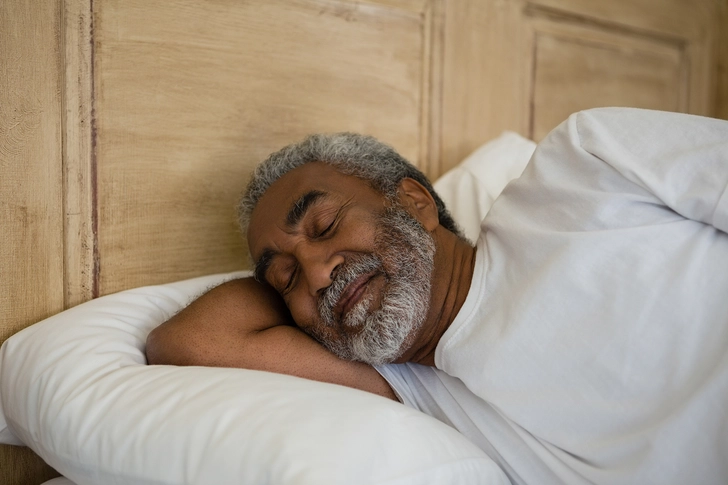
Prioritize Quality Sleep
Sleep and depression are linked —poor sleep worsens depression, while depression interferes with quality sleep. Breaking this cycle can significantly improve your mood. Adults need 7-9 hours of quality sleep for optimal mental health. Establish a consistent sleep schedule, going to bed and waking at the same times daily, even on weekends. Create a relaxing pre-sleep routine that signals to your body it's time to wind down—perhaps reading, gentle stretching, or a warm bath. Make your bedroom a sleep sanctuary: cool (65-68°F is ideal), dark, and quiet. Limit exposure to screens at least an hour before bed, as blue light suppresses melatonin production. Watch daytime habits too—limit caffeine after noon, avoid alcohol near bedtime (it disrupts REM sleep), and try to exercise earlier in the day. If you struggle with racing thoughts, try a "worry journal" before bed to put your thoughts aside. If you're still having trouble sleeping, talk to your doctor.

Strike a Pose with Yoga
Yoga offers a unique combination of physical movement, breathing techniques, and mindfulness that can help with depression. Research shows that regular practice reduces cortisol (the stress hormone), increases GABA (a calming neurotransmitter), and improves heart rate variability (a measure of stress resilience). Different styles offer various benefits: gentle restorative poses and yin yoga promote relaxation and emotional release; more active vinyasa or power flows boost energy and confidence; while breathwork practices can calm an anxious mind. Mindfulness can help you stop overthinking things by focusing your attention to the present moment. Begin with 15-20 minutes daily and work your way up to longer sessions. Many yoga poses can be modified for different fitness and flexibility levels. You can find free online classes to get started. If possible, finding a trauma-informed yoga teacher can be helpful if your depression relates to past trauma or adverse experiences.

Connect with Furry Friends
The human-animal bond offers powerful medicine for depression. Pets provide unconditional love and acceptance without judgment. Caring for an animal establishes routine, responsibility, and purpose, which can be grounding when depression makes life feel meaningless. The physical contact involved in petting animals reduces blood pressure and releases oxytocin, serotonin, and dopamine—all "feel-good" chemicals. Dog owners benefit from regular exercise and increased social interaction during walks. Even watching fish swim has measurable effects on stress reduction. Different pets suit different lifestyles: dogs offer activity and affection, cats provide companionship with less maintenance, while smaller pets or even plants can help those with limited space or energy. If pet ownership isn't feasible, consider fostering, volunteering at a shelter, or animal-assisted therapy programs. Studies show measurable improvements in depression symptoms, particularly for those with limited support from other people.

Try Mindfulness Meditation
Mindfulness meditation addresses a core feature of depression—the tendency to focus on the past or worry about the future. By training attention on present-moment experience without judgment, mindfulness interrupts negative thought spirals that fuel depressive episodes. Regular practice changes brain structure and function, increasing gray matter in regions associated with emotional regulation. Start with just 5-10 minutes daily, focusing on your breath or body sensations. When your mind inevitably wanders, gently redirect attention without self-criticism—redirecting builds the mental "muscle" that helps manage negative thoughts. It's important to be consistent. Brief daily practice yields better results than occasional longer sessions. You can try various approaches: focused attention on breath, body scan meditations, loving-kindness practices, or mindful movement like walking meditation. Free apps (Insight Timer, UCLA Mindful) offer guided practices specifically designed for depression. You'll get the most benefit from regular practice but many people notice improved mood even after their first session.
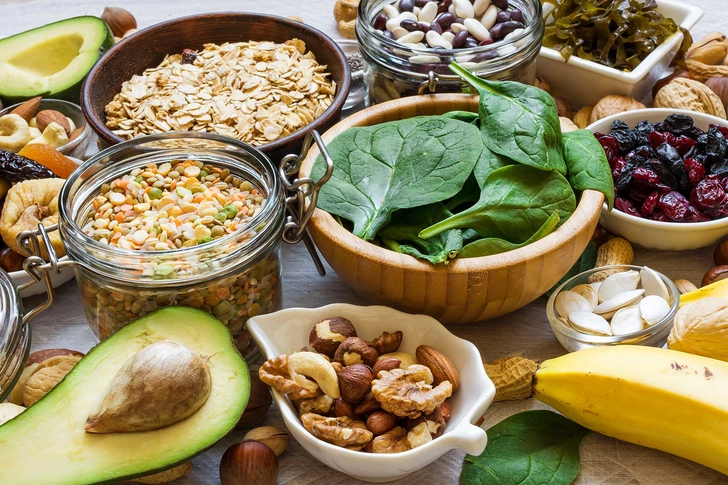
Boost Your Magnesium Intake
Magnesium deficiency is surprisingly common in modern diets and may contribute to depression symptoms. This essential mineral plays crucial roles in brain function: it regulates neurotransmitters that affect mood, supports enzyme function in neural pathways, moderates stress response, and reduces inflammation—all of which can contribute to depression. Studies suggest that supplements can help, sometimes dramatically. Food sources include dark leafy greens (spinach, Swiss chard), nuts and seeds (especially pumpkin seeds and almonds), legumes, whole grains, and dark chocolate. However, soil depletion and food processing have reduced magnesium content in many foods, making it difficult to get enough through diet alone. Magnesium glycinate is often recommended for depression due to its high bioavailability and minimal digestive side effects. Typical therapeutic doses range from 200-400mg daily. Always talk to your healthcare provider before starting supplements, especially if you take other medications or have kidney issues.
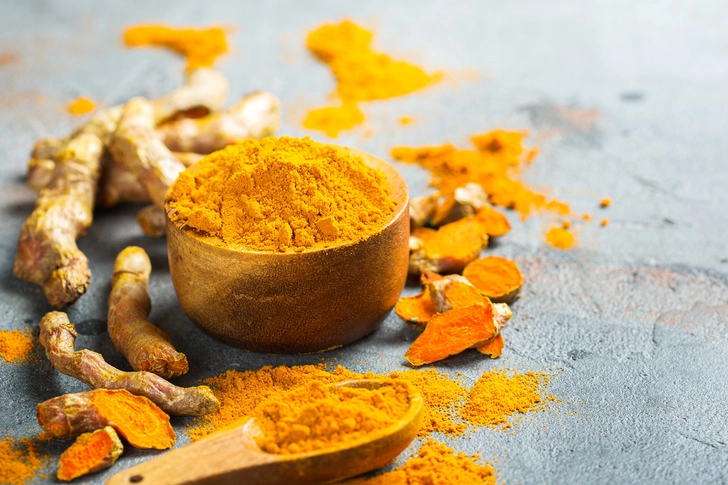
Try Turmeric
Turmeric's active compound, curcumin, shows promise for depression treatment. The spice's anti-inflammatory properties target neuroinflammation, increasingly recognized as a factor in depression. Curcumin also boosts brain-derived neurotrophic factor (BDNF), which supports neuron growth and is typically reduced in people with depression. Additionally, it influences neurotransmitter activity, particularly serotonin and dopamine, like some conventional antidepressants but without the side effects. Several clinical trials have found curcumin supplements comparable to some antidepressants for mild to moderate depression. While incorporating turmeric into cooking is beneficial (combining it with black pepper and healthy fats improves absorption), therapeutic doses typically require supplements. Standard supplementation in studies ranges from 500-1000mg of curcumin daily. As with any supplement, quality matters—look for products with enhanced bioavailability through technologies like piperine addition or nanoparticle formulation. Always talk to your healthcare provider before starting, especially if you take blood thinners or other medications.
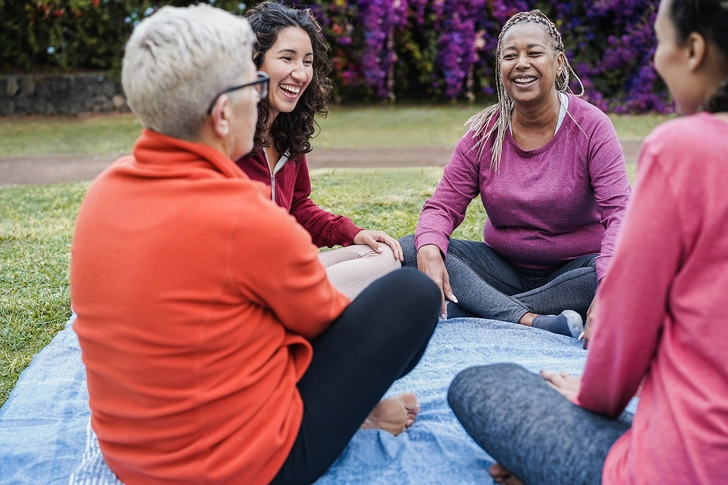
Maintain Social Connections
Social isolation isn't just a consequence of depression—it can actively worsen it, creating a challenging cycle to break. Quality relationships provide emotional support, perspective during negative thought patterns, opportunities for positive experiences, and a sense of belonging that can counteract depression. Even when you don't feel like socializing, a brief interaction can lift your mood. Start small if necessary—text messages, short phone calls, or brief coffee meetings require less energy than extended gatherings. Consider scheduling regular, structured social activities that become routine. Support groups offer unique benefits through connection with others who truly understand depression's experience. Volunteering combines social interaction with purpose and helping others, activating reward centers in the brain. If in-person interaction feels overwhelming, online communities can provide meaningful connection. When you're depressed, strengthening existing relationships may work better than trying to build an entirely new social network.
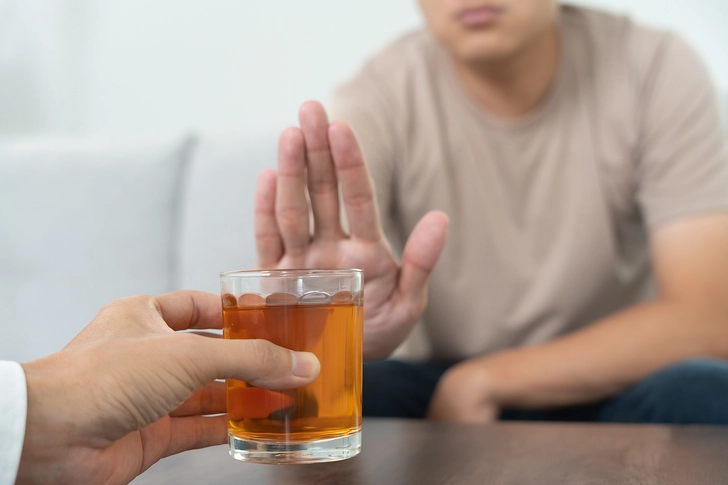
Limit Alcohol and Caffeine
Though many people with depression turn to alcohol to numb emotional pain or caffeine to combat fatigue, both substances can significantly worsen symptoms over time. Alcohol is a central nervous system depressant that alters brain chemistry, disrupts sleep architecture (particularly REM sleep crucial for emotional processing), depletes mood-regulating B vitamins, and can interact dangerously with antidepressant medications. Even moderate consumption can interfere with depression recovery. Similarly, while caffeine provides temporary energy and dopamine boosts, excessive intake increases anxiety, disrupts sleep quality, and can create afternoon crashes that worsen your mood. Gradually cutting back works better than going cold turkey, which can trigger withdrawal symptoms that mimic worsening depression. Try substituting healthier alternatives: herbal teas, sparkling water with fruit, or decaffeinated versions of favorite beverages. Pay attention to timing as well—if you do consume caffeine, limit it to before noon, and if you drink alcohol, allow several hours before bedtime to minimize sleep disruption. in relation to consumption patterns to identify your personal thresholds. If you think you may be dependent on alcohol, talk to your healthcare provider about programs that may help you.

Set Small, Achievable Goals
Depression creates a paralyzing combination of low energy, poor concentration, and overwhelming negative thoughts that make it hard to complete even basic tasks. This inaction then reinforces feelings of worthlessness and hopelessness. Breaking this pattern through small, achievable goals helps to combat depression's lies about your capabilities. Start with modest goals if necessary—getting out of bed, taking a shower, or stepping outside for five minutes all count as successes when depression is severe. Write down your goals, making them specific and measurable. For example, rather than "exercise more," try "walk for 10 minutes after breakfast on Monday, Wednesday, and Friday." Use visual tracking systems like charts or apps to document progress. Celebrate each completed goal, however small, perhaps with a simple self-acknowledgment or small reward. Gradually increase the challenges, but reduce your expectations during difficult periods without self-criticism. This approach builds momentum through a positive feedback loop—each small success increases motivation and energy for the next step. Remember that recovery isn't linear; setbacks are normal parts of the process rather than failures.
PHOTO CREDENTIALS
Slide 1 - Lordn / Getty Images
Slide 2 - MarianVejcik / Getty Images
Slide 3 - Halfpoint Images / Getty Images
Slide 4 - wavebreakmedia / Shutterstock
Slide 5 - f.t.Photographer / Shutterstock
Slide 6 - FluxFactory / Getty Images
Slide 7 - Inside Creative House / Getty Images
Slide 8 - iStock / Getty Images
Slide 9 - Aamulya / Getty Images
Slide 10 - Tint Media / Shutterstock
Slide 11 - shisu_ka / Shutterstock
Slide 12 - JLco Julia Amaral / Shutterstock
SOURCES
National Center for Complementary and Alternative Medicine: "St. John’s Wort and Depression." "Yoga for Health," "Depression and Complementary Health Practices."
FDA: "The Lowdown on Depression."
National Institute of Mental Health: "What is Depression?"
American Psychiatric Association, Practice Guideline for the Treatment of Patients with Major Depression, 2000.
American Psychiatric Association. Diagnostic and Statistical Manual of Mental Disorders: DSM-IV-TR, American Psychiatric Pub, 2000.
WebMD: "What is guided imagery?"
National Institute on Aging: "Don't Let the Blues Hang Around."
Mental Health America: "Staying Well When You Have a Mental Illness."
American Psychiatric Association, Practice Guideline for the Treatment of Patients with Major Depression, 2000.
American Psychiatric Association. Diagnostic and Statistical Manual of Mental Disorders: DSM-IV-TR, American Psychiatric Pub, 2000.
Fieve, R. Bipolar II, Rodale Books, 2006.
Ganji, V. Archives of Internal Medicine, November 2010.
Amit Etkin, MD, PhD, assistant professor of psychiatry and behavioral sciences, Stanford University, Palo Alto, CA.
Harvard Medical School: "Exercise and depression," "Seasonal affective disorder: Bring on the light."
Andrew Leuchter, MD, professor of psychiatry; director, Laboratory of Brain, Behavior, and Pharmacology; senior research scientist, Semel Institute for Neuroscience and Human Behavior and the Brain Research Institute, UCLA.
National Sleep Foundation: "Depression and sleep," "Sleep hygiene," "Cognitive behavioral therapy for insomnia."
National Health Service (UK): "Depression support groups."
National Institute of Mental Health: "Psychotherapies," "Brain stimulation therapies."
Bell, A. Clinical Psychology Review, June 2009.
Johns Hopkins Medicine: "Frequently asked questions about TMS."
National Institute on Aging: "Don't Let the Blues Hang Around."
Mental Health America: "Staying Well When You Have a Mental Illness."
Cleveland Clinic: "Endorphins."
Mayo Clinic: "Clinical depression: What does that mean?"
Johns Hopkins Health: "Depression and Sleep: Understanding the Connection."
International Journal of Obesity: "The influence of 15-week exercise training on dietary patterns among young adults."
Harvard Health: "Exercise is an all-natural treatment to fight depression."
Sandra Barker, PhD, licensed professional counselor; director, Center for Human-Animal Interaction, and psychiatry professor, Virginia Commonwealth University.
Perpetua Neo, PhD, clinical psychologist.
Desiree Wiercyski, life coach, Fort Wayne, IN.
Avigayil Brown, Brooklyn, NY.
Courtney Sparkman, Tulsa, OK.
Anthrozoös: A multidisciplinary journal of the interactions of people and animals: "Do Animal-Assisted Activities Effectively Treat Depression? A Meta-Analysis."
Anxiety and Depression Association of America: "Alleviating Anxiety, Stress and Depression with the Pet Effect."
Human-Animal Bond Research Institute: "Survey: Pet Owners and the Human-Animal Bond."
webmd.com/depression/magnesium-for-depression
The BMJ: “Effect of exercise for depression: systematic review and network meta-analysis of randomised controlled trials.”
CNN: “These simple activities can treat depression as effectively as therapy, study says.”
American Psychiatric Association: “What Is Depression?”
Archives of General Psychiatry: “Complementary Therapies for Depression: An Overview.”
Current Opinion in Psychiatry: “The gut microbiome and diet in psychiatry.”
Harvard Health Publishing: “Diet and depression.”
Harvard Health Publishing: “Nutritional psychiatry: Your brain on food.”
Environmental Health: “Effect of sunlight exposure on cognitive function among depressed and non-depressed participants: a REGARDS cross-sectional study.”
Journal of Affective Disorders: “A review of lifestyle factors that contribute to important pathways associated with major depression: Diet, sleep and exercise.”
Journal of Affective Disorders: “Interacting with Nature Improves Cognition and Affect for Individuals with Depression.”
Mayo Clinic: “Antidepressants: Selecting one that’s right for you.”
Mayo Clinic: “Depression and anxiety: Exercise eases symptoms.”
Mayo Clinic: “Depression (major depressive disorder).”
National Suicide Prevention Lifeline.
Nutritional Neuroscience: “Natural products, micronutrients, and nutraceuticals for the treatment of depression: A short review.”
Psychiatria Polska: “Herbal remedies in depression - State of the art.”
Scientific Reports: “Depressive symptoms are associated with social isolation in face-to-face interaction networks.”
The National Sleep Foundation. American Academy of Family Physicians.
WebMD Health News: "Oral Spray Sleep Drug Zolpimist Approved."
News release, FDA.
Allies In Mental Health: Quebec: "Smiling Depression: An In-Depth Look."
Association for Psychological Science: "The Psychological Study of Smiling."
Chinese Journal of General Practice: "Investigation and Analysis on Smiling Depression of College Students in Guangzhou City."
Cleveland Clinic: "Persistent Depressive Disorder," "What Is High-Functioning Depression? Signs and Symptoms."
Emotion: "The Value of Genuine and Polite Smiles."
Experimental Psychology: "Your Face and Moves Seem Happier When I Smile."
Journal of Social and Personal Relationships: "Smiling Won’t Make You Feel Better, But It Might Make People Like You More: Interpersonal and Intrapersonal Consequences of Response-Focused Emotion Regulation Strategies."
Mayo Clinic: “Depression (major depressive disorder),” “Depression and Anxiety: Exercise Eases Symptoms,” "Depression: Supporting a Family Member or Friend."
National Alliance on Mental Illness: “What You Need to Know About ‘Smiling Depression.,” "The Reality of High-Functioning Depression."
National Institute of Mental Health: "Depression."
Cancer Research and Treatment: "Recent Developments in Delivery, Bioavailability, Absorption and Metabolism of Curcumin: the Golden Pigment from Golden Spice."
Cleveland Clinic: "7 Tips for Taking Turmeric."
Frontiers in Immunology: "The Role of Inflammation in Depression and Fatigue."
Memorial Sloan Kettering Cancer Center: "Turmeric."
National Center for Complementary and Integrative Health: "Turmeric," "Antioxidants: In Depth."
Linus Pauling Institute: "Curcumin."
The Journal of Clinical Psychiatry: "A Critical Examination of Studies on Curcumin for Depression."
Critical Reviews in Food Science and Nutrition: "Curcumin, an active component of turmeric (Curcuma longa), and its effects on health."
InformedHealth.org: "What is an inflammation?"
National Institute of Mental Health: “Depression,” “Anxiety Disorders.”
American Family Physician: “Depression and Anxiety Disorders: Benefits of Exercise, Yoga, and Meditation.”
British Journal of Sports Medicine: “Effects of yoga on depressive symptoms in people with mental disorders: a systematic review and meta-analysis.”
National Center for Complementary and Integrative Health: “Yoga: What You Need To Know.”
Mayo Clinic: “Exercise: When to check with your doctor first,” “Intimidated by yoga? 3 easy ways to get started,” “Yoga: Fight stress and find serenity.”
